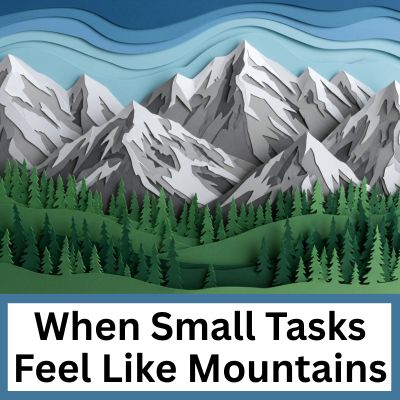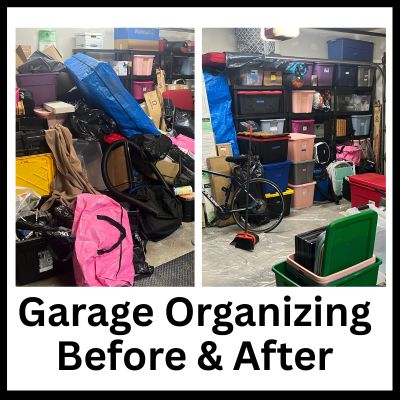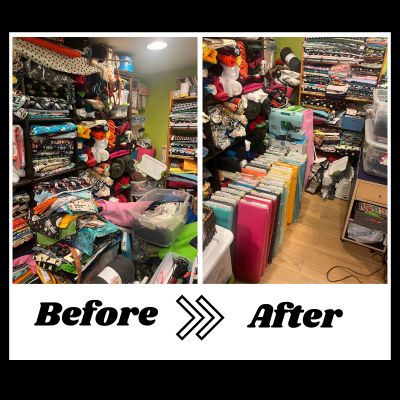Shopping Addiction

As a Certified Professional Organizer, I take continuing education classes so that I can uphold my certification. My most recent class was from shopping addiction expert, Carrie Rattle, owner of Behavioral Cents. The class gave me such a better understanding about the causes of shopping addiction and how to deal with it. As a Professional Organizer, I have to help people process things they’ve purchased. When their purchasing is out of control, it makes it impossible to get things organized. If you’re someone who is struggling with compulsive shopping, please read this post. As you’re reading, remember that we all need to shop. Everyone needs to buy food, clothes, home goods, etc. But if you think your shopping is problematic, please consider getting help. Also, some people chronically feel shame and guilt due to past trauma or generational patterning. It’s possible you may be shopping an appropriate amount, but feel needlessly guilty or shameful. While chronic guilt/shame doesn’t necessarily point to compulsive shopping, it is an indicator that you may have some healing work to be done. Something else to consider if you feel like you may be spending beyond your means is: is your income sufficient for the city you live in or the lifestyle you want? You may not have a shopping addiction, but you may have some self-worth beliefs to transform. If deep down you feel like you aren’t worthy of accumulating wealth, you may find yourself chronically under-earning and in a situation that just looks like a shopping addiction.
Are You Over-Shopping?
- Do you leave to go shopping (or shop online) when you are disappointed, scared, or angry?
- Is your spending emotionally disturbing or has it caused chaos in your life?
- Have your shopping habits created friction with people you are close to?
- Do you chronically overuse your credit cards?
- Does shopping bring a rush of euphoria and then anxiety?
- Does shopping feel reckless, dangerous, or forbidden?
- Do you feel guilty, ashamed, embarrassed, or confused after shopping?
- Do you end up with many purchases that are rarely/never work or used?
- Do you lie about how much was spent on purchases?
- Do you obsess over money?
- Do you spend lots of time juggling credit card balances and bills to accommodate shopping?
Why People Over-Shop
While the global trauma of the Covid-19 Pandemic has seriously exacerbated shopping addiction, the most basic way to understand why people over-shop is to look at our core needs. Our core needs are:
- Love and Affection
- Belonging
- Esteem of Others
- Self-Esteem
- Self-Actualization
When people have emotions that trigger their core needs, if they don’t know how to soothe their emotions in a healthy way, they may turn to addiction. This addiction could be substance abuse, video games, too much news/social media, over-eating, over-exercising, or over-doing anything, including over-shopping. When people experience grief, loss, anxiety and depression, that triggers their need for love and affection. Anxiety, stress, and a lack of acceptance trigger the need to belong. Depression, lack of self-worth, and need for status trigger the need for the esteem of others. Depression, boredom, excitement, shame, and entitlement trigger the need for self-esteem. Revenge, lack of power, lack of control, boredom, and excitement trigger the need for self-actualization.
How to Stop Over-Shopping
People won’t stop over-shopping until they are ready. A lot of people believe they “should be able to stop on their own” and have extreme shame around their shopping behaviors. Many people are also in denial around their shopping habits. If you are struggling with shopping addiction, I highly recommend contacting Carrie. Helping people with shopping addiction is such a specialized skill. She said many therapists are not trained to help people with shopping addiction, and so they refer their clients to her. She is highly trained to help people overcome their shopping addiction. She has a lot of love and empathy for her clients, and has helped many people overcome this crippling addiction. People who are suffering from an addiction can’t “just stop”. Lasting change goes much deeper than shear willpower.
In addition to a mindset makeover and exercises to help someone get clarity around how much they are spending and why they are spending it, Carrie is an advocate for helping people fill their basic needs through healthy outlets. When your basic needs are filled, you won’t feel the compulsion to over-shop.
Below are some examples Carrie shared with us about how to fill some basic needs.
Love and Affection
- Sit with a pet
- Plan activities to be with others
- Reach out to a friend
- Express appreciation and thanks to others
- Show love to your family
Belonging
- Join a club or volunteer
- Invite friends to do something that doesn’t cost money
- Attend a conference or local community meeting
Self-Esteem
- Build love for yourself in other ways- physical challenges, a cause, mentor someone
- Say NO when you no longer wish to do something
Esteem of Others
- Perform, speak, display your talents in front of others
- See the company of someone who admires you
- Make your boss look good
- Teach someone else; lead by example
Self-Actualization
- Take a course in something you’ve always wanted to do
- Broaden your spiritual introspection
- Stand up for your values
- Pursue your bucket list
Usually, filling these basic needs is a combination of doing these simple tasks and doing some deep belief-change work. If you grew up in a family where you always felt like an outcast, when you go to join a club or do something else with a group of people, those familial patterns will get repeated until you are emotionally ready to transform that patterning. This belief-change work requires a lot of deprogramming of learned patterns while simultaneously building the neural networks to allow for updated beliefs.
Resources
- Visit Carrie’s Website, Behavioral Cents, for programs, videos, and blog articles, and a self-help program
- Join Debtors Anonymous/Spenders Anonymous
- Get freedom Software for phone and PC – tick “shopping” and add sites
- Work with a financial coach for education and advice
- Engage in credit counseling and debt consolidation
- Read: To Buy or Not to Buy: Why We Overshop and How to Stop by April Lane Benson
- Join the Facebook Group : Shopping Addiction Support
- Call Carrie Rattle at 914-923-6081

By Jean Prominski, Certified Professional Organizer
Check out my media exposure: Seattle Sparkle in the Media
Download my free 5 week journal The Seattle Sparkle Method to Get Organized and Stay Organized
Sign up for my free 4 Day Color to Declutter Challenge.
Become part of a like-minded community by joining my Facebook Group, Declutter and Organize with Seattle Sparkle.
Ready to book a consultation? Complete this form.
For artwork to energize your home, order through jeanprominski.com or on Etsy.




